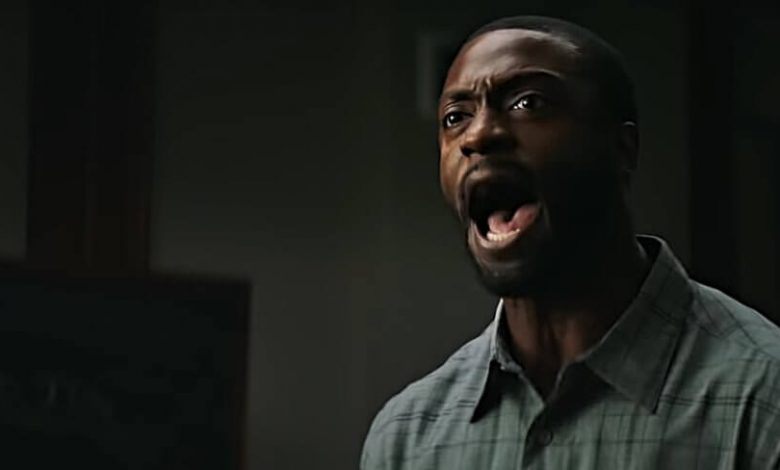‘Brian Banks’ Director Broke All the Hollywood Rules

Tom Shadyac had it all until he gave most of it back.
Shadyac directed most of Jim Carrey’s comedy blockbusters, including the “Ace Ventura” films, “Liar Liar” and “Bruce Almighty.”
The gigs paid handsomely.
His $50 million fortune included a 17,000 square-foot mansion with two other side houses on a seven-acre property in Pasadena. He still felt miserable inside.
A near-fatal bicycle accident gave him the awakening he needed.
Shadyac’s long recovery saw him ditch his lavish lifestyle and reconnect with the Catholic faith. He also left Hollywood behind for more than a decade, finally returning with the spiritual 2010 project “I Am.”
His cinematic comeback continues this weekend with “Brian Banks.”
The fact-based film shines a spotlight on judicial reform. Aldis Hodge (“Hidden Figures”) plays the football standout whose life gets derailed following a false rape accusation.
The film aligns with Shadyac’s new worldview.
“I got sick about 13 years ago, had a bad concussion and it tossed me out of the game a couple years with post-concussion syndrome,” recalls Shadyac. “I haven’t been able to get anything going for a long, long time. I had a lot of changes in my life that led to a film like this. I live in Memphis now and live and work in an underserved community that’s changed my life. I went to work and teach in Memphis and I ended up being taught.
“I moved to Memphis because my father was one of Danny Thomas’ partners in starting St. Jude’s Children’s Research Hospital there,” he continues. “My brother heads their fundraising now and challenged me to move here and teach film. I started at University of Memphis, then switched to a historically black college. It allowed me to experience a part of America I’d never been allowed to experience before, and I couldn’t move on after having the pleasure of teaching their young people.”
The choice of telling Banks’ life story came about because Shadyac was having difficulty getting comedies approved after his self-imposed exile. He also found hope in Banks’ tale.
Banks was a star football player at Polytechnic High School in Long Beach when a female classmate charged him with rape. His public defender urged him to make a no-contest plea deal, explaining he’d only serve three months probation sans a adult criminal record.
His NFL dream would be spared.
But when the judge unexpectedly threw the book at him with a six-year prison sentence and five years of parole, Banks’ dreams seemed dashed.
The film shares how one juvenile detention center instructor (Oscar winner Morgan Freeman) convinced him to turn to faith to power past his ordeal. The film also captures California’s Innocence Project, and the role it played in his belated NFL career.
“I took the picture because he was so positive,” says Shadyac, who created a 2011 documentary called “I Am” about his lifestyle change and spiritual quest. “His mantra is ‘it’s not what happens to you, but how you respond to what happens to you.’ So it’s a lesson in how we can handle hardships in our lives.
“Oprah [Winfrey] says the universe will give you a light slap, and if you don’t listen it’ll slap you harder, and if you’re really deaf, it’ll slap you good,” he continues. “I’m raised in the church, with Catholic faith, and it’s all about service and sharing your wealth and helping the underserved, and yet I had found my life being completely the opposite. I felt the wealth inequity in society for years and didn’t want to be part of the inequity. I’ve been giving my wealth away, and I don’t say that to be praised. I’m doing it as part of this experimental path. But I do feel that when one is given, one must give.”
RELATED: Heston’s Son. Dad Would Support Jim Carrey’s Free Speech Righ
While Shadyac and Carrey parted ways professionally between their biggest hit, 2003’s “Bruce Almighty,” and Shadyac’s last prior film, its 2006 Carrey-less sequel “Evan Almighty,” he looks back fondly on their collaborations.
“I do believe in this thing called destiny,” says Shadyac. “I see those threads all over my life and Jim was one of those threads. When I got the opportunity to direct’ Ace,’ he was explosive. No one could match him. He took over every room. The depth of his talent is bottomless. I said, ‘let’s see if we can give this guy a platform, people have tried to sit on him and not give him a free rein springboard for his talent.’
“We were able to craft that character for Ace around how Jim took the microphone: ‘Good to see you, ladies and gentlemen, how are you, take care, bye bye then!’ … we ended up doing the whole movie that way. The silliness, the total commitment, the childlike quality somehow resonated.”
Ultimately, Shadyac wants to craft films that put a positive message into the world, regardless of genre.
“I want to do every color of the rainbow,” says Shadyac. “Don’t put me in the dramatic box only. I just want pictures that will inspire. I think the bend of the universe is toward justice and light. We won’t avoid movies with real difficulties in them. We’ll go deep and dark, but want to come out in the light.”
To hear more of this extensive interview, visit the “Man Up” show web site.
